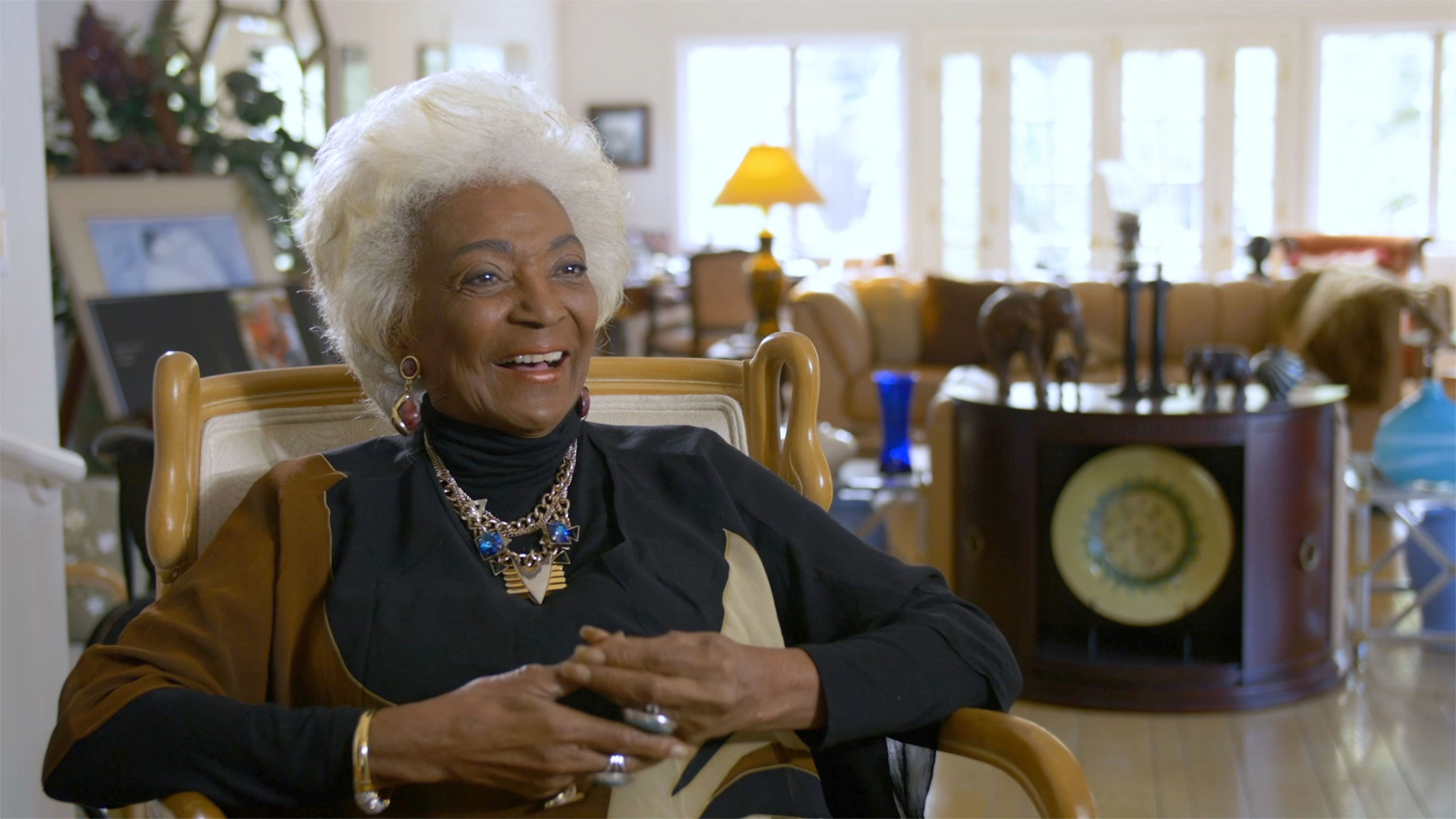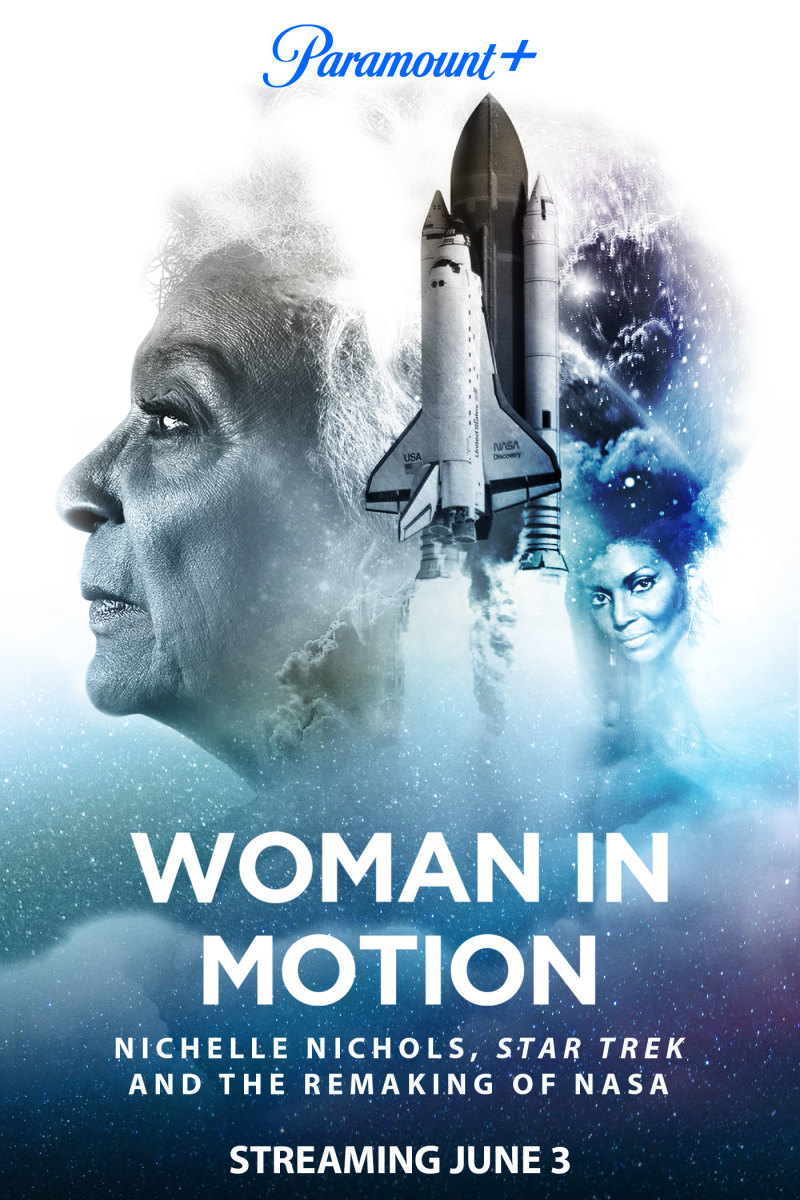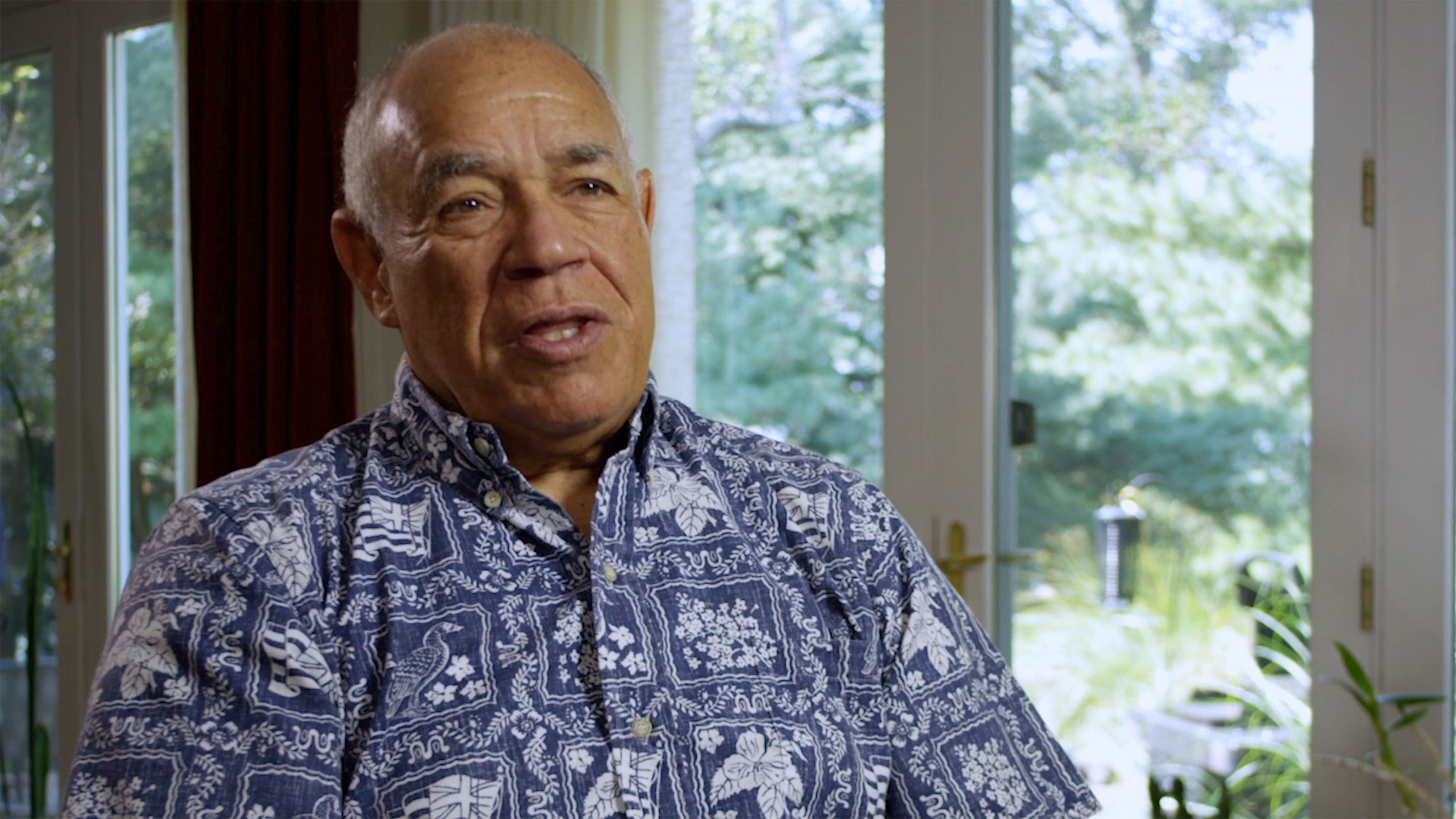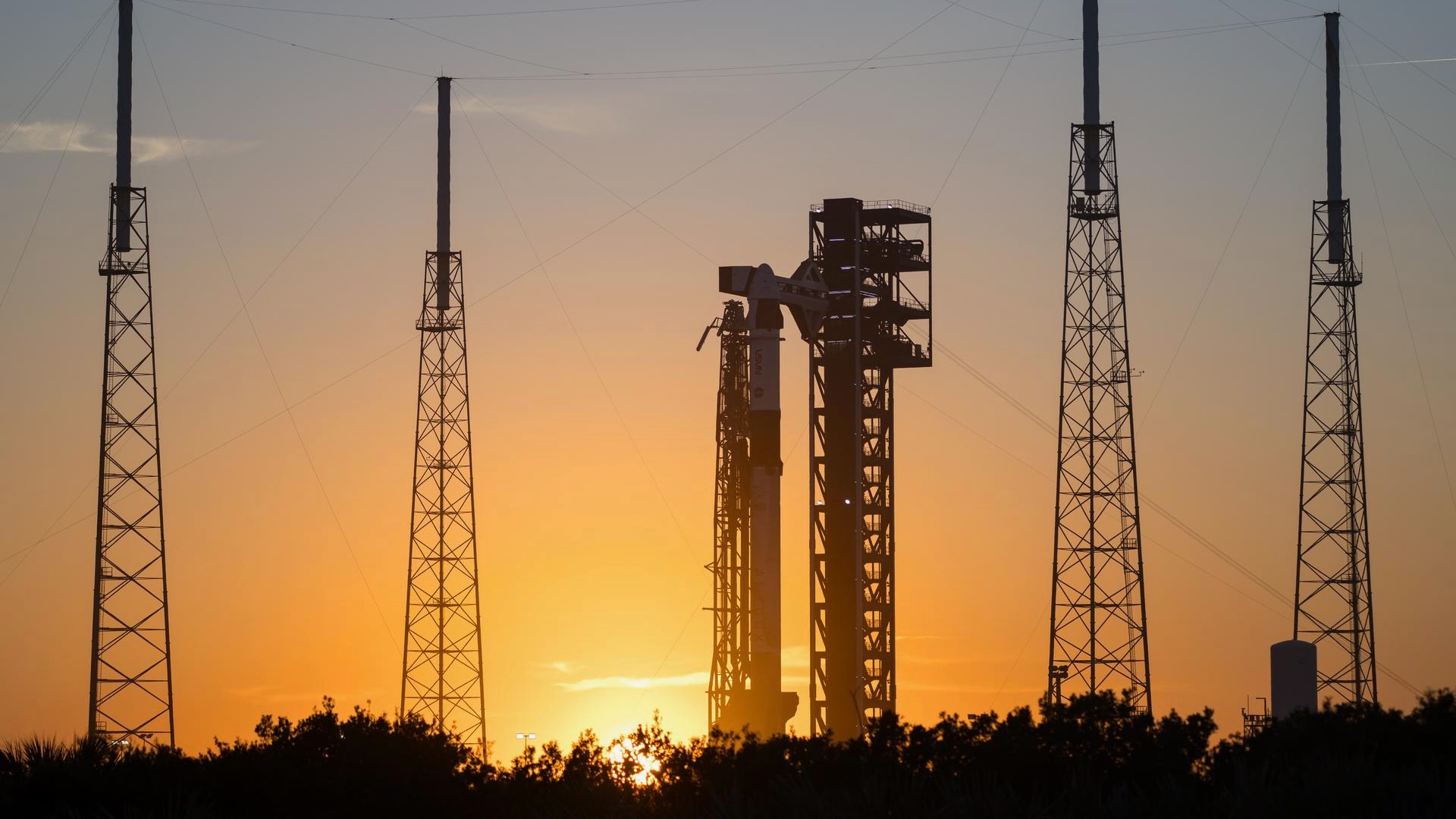New documentary explores 'Star Trek,' Nichelle Nichols and NASA's 1970s astronaut search
Breaking space news, the latest updates on rocket launches, skywatching events and more!
You are now subscribed
Your newsletter sign-up was successful
Want to add more newsletters?

Delivered daily
Daily Newsletter
Breaking space news, the latest updates on rocket launches, skywatching events and more!

Once a month
Watch This Space
Sign up to our monthly entertainment newsletter to keep up with all our coverage of the latest sci-fi and space movies, tv shows, games and books.

Once a week
Night Sky This Week
Discover this week's must-see night sky events, moon phases, and stunning astrophotos. Sign up for our skywatching newsletter and explore the universe with us!

Twice a month
Strange New Words
Space.com's Sci-Fi Reader's Club. Read a sci-fi short story every month and join a virtual community of fellow science fiction fans!
In the 1970s, "Star Trek" actor Nichelle Nichols saw an astronaut corps lacking in diversity and did what she could to change it.
The story of how Nichols went about it – and the various people she inspired – is told in the new documentary "Woman In Motion: Nichelle Nichols, Star Trek and the Remaking of NASA." The feature-length show is available today on streaming service Paramount+.
The documentary largely covers the famous 1975 astronaut campaign in which Nichols targeted women and minorities to expand NASA's corps from the traditionally white male group and the effects that had through the 1980s. It also includes interviews with numerous Black individuals at NASA, along with prominent Black representatives in entertainment, science and politics.
Space.com sat down with director Todd Thompson to follow the seven-year journey it took to bring the documentary to screen, and how much influence "Star Trek" had on him as a child.
- Want to try Paramount+? Here's a free one-month trial
- Subscribe to Paramount+ for $5.99/month
Space.com: What inspired you to start this documentary?
Todd Thompson: It was a phone call I got from my business partner, back in November of 2014. We do talk regularly, of course, throughout the week. But one day he just called me out of the blue with some other people and basically told me point blank, 'We're making a documentary about Nichelle Nichols, and here's the pitch.' Over the course of a 20- to 30- minute phone call, they laid it out for me and what it was all about.
It took me no time at all for me to be 100% on board and realize what an important story that was to devote ourselves to – and to make sure that we told the right way so that we could share it with the world. I was aware of "Star Trek," and of course I knew of Nichols, but I had no idea what she did [for the astronaut program]. I was pretty floored by that.
Breaking space news, the latest updates on rocket launches, skywatching events and more!
Space.com: When did you first get interested in "Star Trek"? Were you watching it when you were a kid?
Thompson: I was a "Star Wars" guy. I grew up living and breathing "Star Wars" and to this day, still avidly collect all the action figures and make sure my kids are engrossed in it as well. But "Star Trek" for me was my dad watching "The Original Series" on a little black-and-white TV we had in the kitchen. I also got exposed to the movies.
"The Wrath of Khan" (1982) was the first "Star Trek" movie I saw, at a sleepover birthday party I went to when I was in sixth grade. So I definitely was aware of "Star Trek" and I loved everything space, but it was "Star Wars" for me [back then]. It really wasn't until I got this invitation to direct the film that I truly dove into "Star Trek" deep, and formed a whole new appreciation for everything "Star Trek."
Space.com: What kind of research were you trying to draw upon to really tell the story you wanted to tell?
Thompson: Luckily, when Nichols finished her mission [to recruit astronauts at NASA], she had to produce a final report, which turned out to be about 400 pages long that we were able to get our hands-on. It was almost like having the world's encyclopedia in your hands because everything was incorporated into this document.
That was very much our guide for not just which topics to cover, but who she was with and where she went – along with what she did when she was there. It really helped guide us, with not only our story but then you know who we were going to reach out and talk to.
Space.com: How were you able to get those various interviews, especially with so many members of the Black space community?
Thompson: It was organic. We focused on who was involved with the project, or who touched Nichelle along the way, and who was important to NASA. We also were looking to who represents or carries the torch for what she helped ignite back in the day. Examples included [now-deceased Congress representative] John Lewis and civil rights attorney Benjamin Crump. Crump is one of our partners on the film; he came on board as an executive producer about halfway through production.
In pictures: 'Star Trek' and NASA - A mind-meld of sci-fi and fact
Space.com: Why did you include a mix of documentary clips along with present-day footage when you were showing Nichols' interviews about the campaign?
Thompson: We shot everything we needed from her over the course of two and a half years, so we have a present-day version of her story. But then, doing a lot of our research, we uncovered this amazing archival film from Washington University in St. Louis, and the Academy of Television Arts & Sciences did an interview with her in the 1990s. Then [we found] a couple of clips of her from the 1970s.
In having all this material, what stood out about it was she would tell her story so consistently, whether it's in the 70s or 90s. So it was a cool idea that we had to allow her to tell [the story] from various chapters in her life, and various time periods in their life. I really think it was an amazing idea and a creative approach to watching the story unfold.
Space.com: The documentary seemed to largely stop after the campaign had finished, and the first astronauts she recruited came in. There was a little bit beyond, to let's say the late 1980s, but afterward there wasn't much said about progression in "Star Trek" and NASA in terms of diversity. How did you try to decide where it ended and the major themes you wanted to address?
Thompson: There's so much about the story that we could continue to tell. Recently she slowed down a little bit, obviously, because of her age and health but she was so active literally up until maybe last year. There's so much of her story that could have continued onward. But as a filmmaker, when you know the actual core story you're trying to sell, at some point you need to focus on that.
Our goal was to go on this journey with her, and show how she used her celebrity and the "Star Trek" philosophy to literally bring change to the space program, and we enjoy that change [to] this day. So our focus was on her mission, and then the direct results from that mission, and that's why we decided to keep it contained.
Space.com: What do you want audiences to really take away from this documentary when they watch?
Thompson: I really want them to walk away feeling inspired. I want them to walk away feeling energized, and feeling hopeful. I think most importantly of all, I really want anyone who sees it to realize that no matter who you are, no matter what you do, you have an opportunity to make a difference in what you do and how you do it. [How can] you adjust your beliefs, and how can you go about being dedicated to bringing change into the world?
You don't have to be a TV actress or to be an astronaut. You can be yourself, and still make an incredible impact on society. I would love to get to a place where we don't have to identify somebody by their gender or their race; instead just, we're human beings with incredible talent, and we all bring something unique to the table to accomplish.
Follow Elizabeth Howell on Twitter @howellspace. Follow us on Twitter @Spacedotcom and on Facebook.

Elizabeth Howell (she/her), Ph.D., was a staff writer in the spaceflight channel between 2022 and 2024 specializing in Canadian space news. She was contributing writer for Space.com for 10 years from 2012 to 2024. Elizabeth's reporting includes multiple exclusives with the White House, leading world coverage about a lost-and-found space tomato on the International Space Station, witnessing five human spaceflight launches on two continents, flying parabolic, working inside a spacesuit, and participating in a simulated Mars mission. Her latest book, "Why Am I Taller?" (ECW Press, 2022) is co-written with astronaut Dave Williams.



